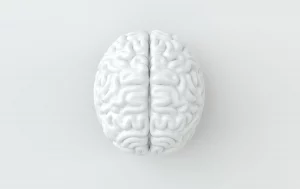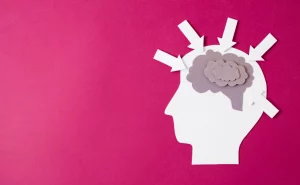Types of Aphasia – Aphasia disease is a condition that results in the inability to understand or express spoken or written language. Aphasia can develop due to a stroke, brain injury, or other brain conditions. Symptoms of aphasia may include difficulty speaking, trouble finding the right word, and problems writing. Aphasia can make it hard to communicate with others and can cause feelings of frustration, isolation, and anxiety. There is no cure for aphasia, but treatment can help people manage their symptoms and improve their communication skills.

Causes and Risk Factors of Aphasia
Aphasia is caused by damage to some regions of the brain that control language. The most common cause of aphasia is a stroke. Other causes include brain tumors, head injuries, and Alzheimer’s disease. Aphasia can also be caused by certain infections, such as meningitis or encephalitis.
Several risk factors can increase the chances of developing aphasia, including:
– Age: Aphasia is more common in older adults. The risk of developing aphasia increases with age.
– Gender: Men are more likely to develop aphasia than women.
– Health history: People who have had a stroke or other brain injury are at increased risk for developing aphasia. Other conditions that may increase the risk include Alzheimer’s, dementia, and head injuries.
– Family history: A person is more likely to develop aphasia if they have a family member with the condition.
Types of Aphasia
There are several types of aphasia, each with its symptoms. The most common types of aphasia are listed below:
– Broca’s aphasia: Also called expressively or nonfluent aphasia, this type is characterized by difficulty speaking. People with Broca’s aphasia may speak in short, choppy sentences and have trouble finding the right word.
– Wernicke’s aphasia: Also called receptive or fluent aphasia, this type is characterized by difficulty understanding spoken language. People with Wernicke’s aphasia often speak in long, rambling sentences that are hard to follow. They may also use made-up words.
– Anomic aphasia: This type is characterized by difficulty finding the right word. People with anomic aphasia often have trouble naming objects or people. They may also have difficulty understanding spoken language.
– Global aphasia: This is the most severe type of aphasia. Global aphasia is characterized by severe speaking, understanding, reading, and writing problems. People with global aphasia may be able to say only a few words.

Aphasia can also be classified based on when it develops. The two types are:
– Primary progressive aphasia: This type begins gradually and gets worse over time.
– Reversible aphasia: This type is caused by a condition that can be treated, such as a stroke. The symptoms of reversible aphasia may improve with treatment.
Symptoms of Aphasia
Symptoms of aphasia vary depending on the severity of the brain damage. Some people with aphasia may only have mild trouble speaking, while others may be completely unable to speak or understand language. Symptoms may also change over time.
Common symptoms of aphasia include:
– Difficulty speaking: People with aphasia may have trouble finding the right words to say. They may speak in short, simple sentences or repeat the exact words repeatedly.
– Difficulty understanding speech: People with aphasia may have trouble understanding what others say. They may also have trouble reading and writing.
– Problems with grammar: People with aphasia may make errors when speaking or writing. They may use made-up words or put words in the wrong order.
– Changes in communication: People with aphasia may use gestures or body language to communicate. They may also draw pictures or use written notes to communicate.
Diagnosing and Treating Aphasia
Aphasia is diagnosed based on symptoms and medical history. A doctor may also do a neurological exam to check for other problems causing symptoms. A brain scan, such as an MRI, may also be done to look for damage to the brain.
Treatment for Aphasia
There is no cure for aphasia, but treatment can help people manage their symptoms and improve their communication skills. Speech-language therapy is the most common treatment for aphasia. This type of therapy can help people learn new ways to communicate. Some people with aphasia may also benefit from occupational therapy, physical therapy, and counseling.



